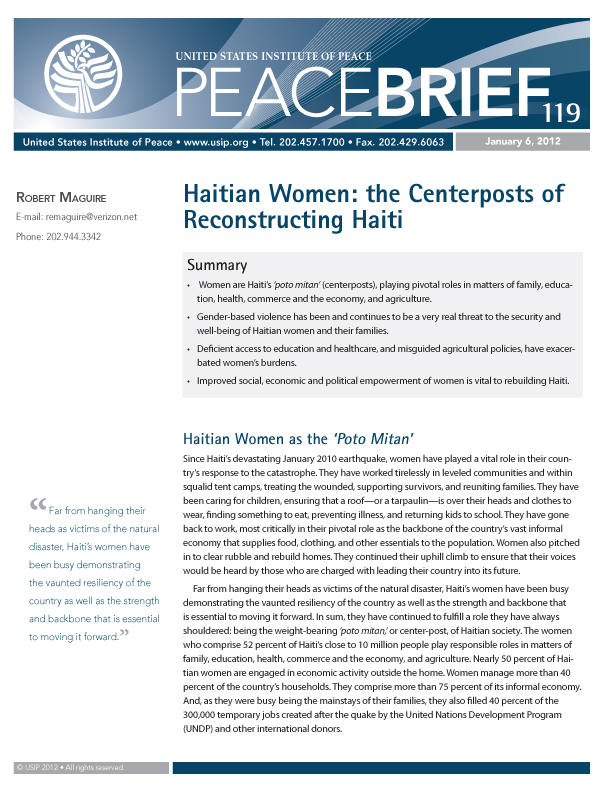Since Haiti’s devastating January 2010 earthquake, women have played a vital role in their country’s response to the catastrophe. This Peace Brief, by USIP's Robert Maguire, discusses the pivotal roles women are playing in matters of family, education, health, commerce and the economy, and agriculture.

Summary
- Women are Haiti’s ‘poto mitan’ (centerposts), playing pivotal roles in matters of family, education, health, commerce and the economy, and agriculture.
- Gender-based violence has been and continues to be a very real threat to the security and well-being of Haitian women and their families.
- Deficient access to education and healthcare, and misguided agricultural policies, have exacerbated women’s burdens. Improved social, economic and political empowerment of women is vital to rebuilding Haiti.
About This Brief
The author of this report, Robert Maguire, is chair of the Haiti Working Group at USIP. He is a Professor of the Practice of Inter¬national Affairs in the International Development Studies Program of the Elliott School of International Affairs at George Washington University and Director of GWU’s Latin America and Hemispheric Studies Program.